6 Expert Tips on How to Be a Responsible Traveler in Hawaii
With tropical temperatures, world-renowned surf breaks, and idyllic beaches, it's easy to see why Hawaii is a top vacation destination. But the islands are much more than a destination; they are home to approximately 1.5 million people, Native language and culture, delicate ecology, sacred sites, and endangered species.
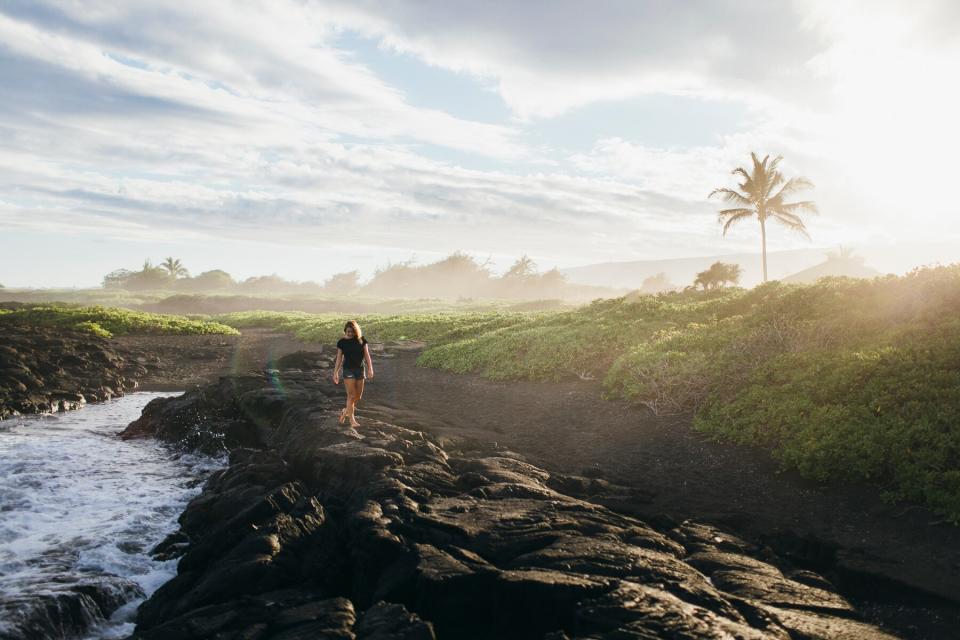
Canvan Images/Getty Images
As visitor numbers surge to pre-pandemic levels (30,000 arrivals per day on average), so, too, does the risk of destroying all that makes Hawaii such a beloved place.
As a traveler, your choices have a direct impact, for better or worse. You have the opportunity and kuleana (responsibility) to treat the islands — and its people and wildlife — with Aloha. So, if you're planning a trip to Hawaii, consider these expert tips on how to travel to the state responsibly.
1. Plan ahead.
A memorable and meaningful trip to Hawaii starts long before you arrive at the airport.
Avoid last-minute deals and plan ahead, especially while pandemic-related restrictions are still in place, says Robynne Maii, chef of Fête and Heyday. Some restaurants and tourist activities are not fully open, many are not yet fully staffed, and those that are may have limited capacity and therefore book up quickly.
"It's difficult to get in anywhere without a reservation these days," says Kylie Shimada, director of experience at The Surfjack Hotel & Swim Club.
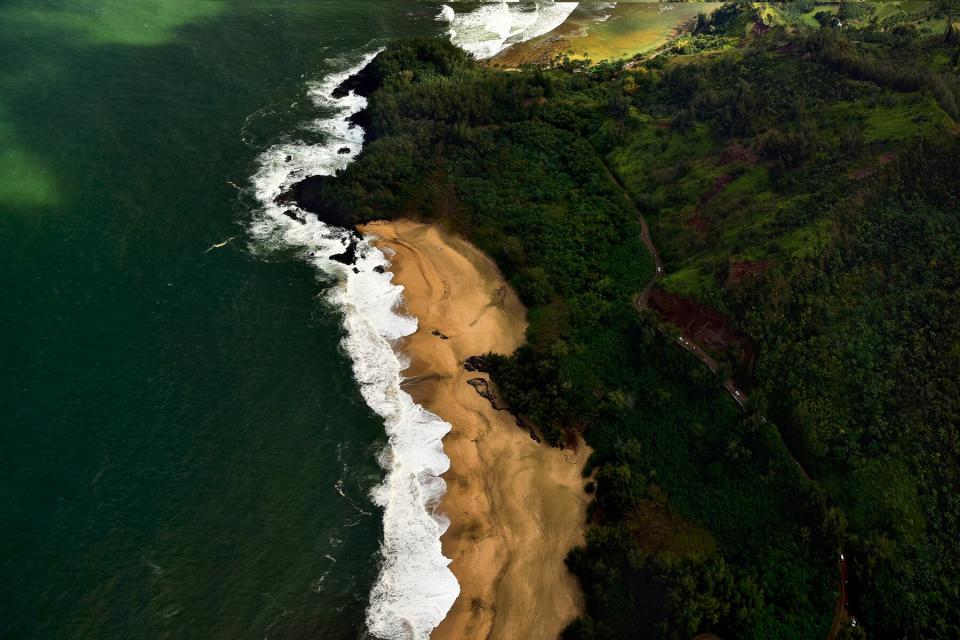
Shobeir Ansari/Getty Images
Some parks have also implemented reservation systems in an effort to better manage visitor numbers and protect Hawaii's delicate natural environment. Sue Kanoho, executive director of Kauai Visitors Bureau, says that in some popular sites, like Ha'ena State Park, you can no longer enter without a reservation.
Trip preparation should also include familiarizing yourself with local laws and culture, says Ha'aheo Zablan, Native Hawaiian and general manager of Kaimana Beach Hotel. Putting in this effort upfront will lead to a safer, more respectful, and enjoyable experience.
2. Choose local.
Hawaii has so much to offer that you could easily become overwhelmed by hotel, activity, and restaurant options. Narrow your search to locally owned businesses that prioritize Native knowledge and eco-friendly practices, and are mutually beneficial to visitors and locals.
"Seek out culturally enriching experiences such as Kualoa Ranch and the Bishop Museum," Zablan suggests. "Book with locally owned adventure companies, and shop at farmers markets instead of big-box retailers."
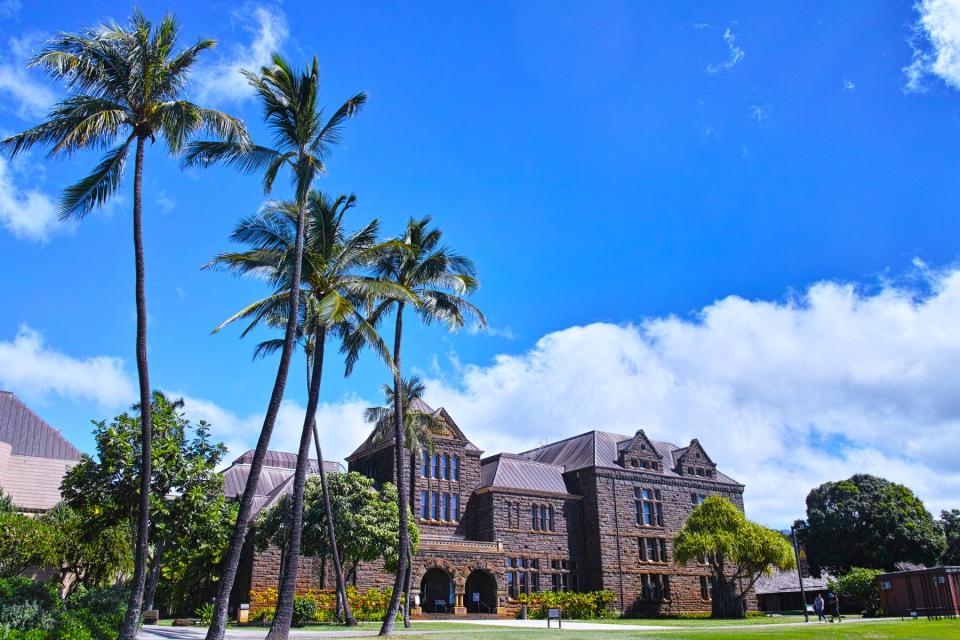
Getty Images
Don't miss the opportunity to learn from those who know Hawaii best. Opt for activities, like lei-making or surfing, led by Native Hawaiians. "Learn about Hawaiian history, trials, and tribulations. Don't be afraid to talk to locals and ask questions," says Kaleo Kenui, Native Hawaiian and general manager of AC Hotel by Marriott Maui Wailea. "We love sharing our culture and history, as long as your interest is genuine."
Try traditional foods such as poi (pounded and fermented taro root) and lau lau (pork and butterfish wrapped and steamed in ti and taro leaves) at local spots like Highway Inn, or enjoy an evening out at a restaurant, like Merriman's, which showcases Hawaii Regional Cuisine, is mindful of sustainable fishing, and incorporates culturally significant ingredients.
3. Live Aloha.
Aloha is much more than a slogan, says Native Hawaiian "Uncle" Bruce Keaulani, CEO of Living Life Source Foundation. "It's a way of life that our ancestors passed down through stories, songs, caring for each other, and welcoming, open arms." And, he says, we all have a responsibility to perpetuate it. "The simple act of greeting each other, strangers or friends, with sincerity and saying 'Aloha' — on the street, on the beach, in hotels, on hiking trails, on highways — manifests that spirit and keeps the love and light of Hawaii alive in each of us, visitors and local people alike. 'Aloha aku, Aloha mai' ('love given, love received')."
When visiting Hawaii, behave in the way you would when you're a guest in someone's home. "No matter where you grew up in the world, we were all taught by our elders to be respectful when visiting someone's home," says Douglas Chang, Native Hawaiian and general manager of The Ritz-Carlton Residences, Waikiki Beach.
"Bring your best manners," says Ekolu Lindsey, Native Hawaiian and president of Maui Cultural Lands. "'Please,' 'thank you,' and a well-intentioned shaka go a long way." If you're staying in a residential area, Lindsey recommends greeting your neighbors, keeping noise to a minimum, and offering food to show Aloha.
"We like to be gracious and generous in Hawaii," Maii says. "Visitors have to do their part as well — it's a two-way street."
4. Heed the signs.
It's natural to be entranced by Hawaii's exquisite environment, but it's equally important to heed posted signs and local alerts, laws, and authorities. Some sites and species are protected for cultural and ecological reasons; weather can change quickly, and terrain and ocean conditions may be more dangerous than they appear. In addition to the disruption of your vacation that an injury (or worse) could cause, tourist rescues strain local resources. So, always check the weather and surf reports, stay on marked trails and in designated viewing areas, and don't cross private property.
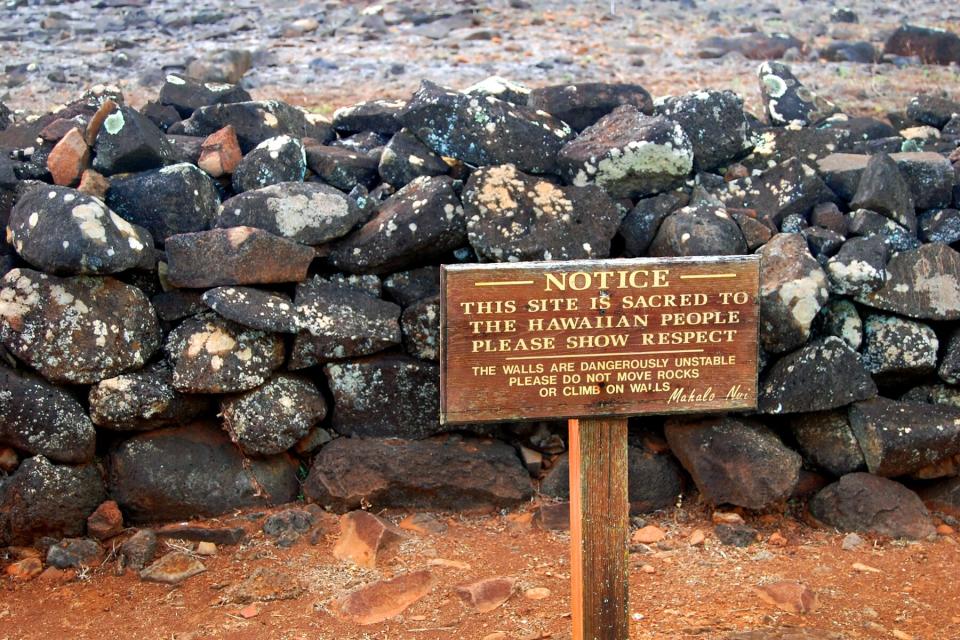
Getty Images
You must also abide by pandemic protocols, says Kalani Ka'ana'ana, Native Hawaiian and chief brand officer of the Hawaii Tourism Authority. Although some states have relaxed their rules, Hawaii's hospitals have limited capacity and resources, and everyone is still expected to wear masks indoors — regardless of vaccinations status.
5. Tread lightly and lend a hand.
The concept of malama 'aina (caring for the land) is at the heart of Hawaiian culture, says "Aunty" Wendy Tuivaioge, Native Hawaiian and cultural ambassador at the Four Seasons Resort Maui at Wailea. Hawaiians regard the land as "an extension of us," Zablan says. And it's all of our kuleana to protect it.
Visitors to Hawaii share this responsibility. "Everything we do impacts and alters the environment we live in," says Chang. The islands' ecology is fragile, natural resources are limited, and several endangered species, including the Hawaiian monk seal, live here.
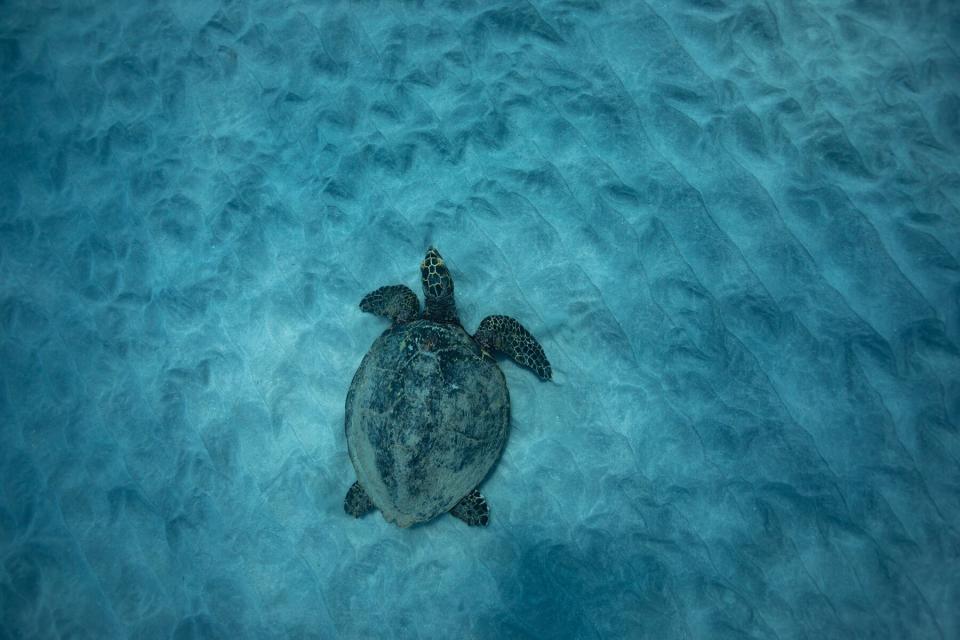
Brett Monroe Garner
Reduce your footprint by using only what you need, wearing reef-safe sunscreen, picking up trash you find at the beach or in the ocean, avoiding single-use plastic, opting for human-powered activities (such as outrigger canoe paddling or surfing), carrying a reusable water bottle and bag, leaving the natural landscape as it is (don't remove lava rocks and seashells, for example), and keeping a distance from wildlife.
"Turtles need rest; let them nap peacefully. Sharks need space; let them swim freely. Coral reefs are home to marine life; touching them can destroy them. Hawaiian monk seals are sacred; think of them like royalty and give them the space they deserve," Lindsey says. While it's natural to be excited when you encounter these beautiful creatures, keep in mind that "you are entering nature's house, and enjoy the show from a distance."
For those who want to spend some time volunteering in Hawaii, there are ample opportunities through organizations like the Surfrider Foundation, Sustainable Coastlines, and Lahaina Restoration Foundation. Many hotels can also arrange for you to join a beach cleanup, and some, such as Ko'a Kea Hotel & Resort, offer "Care of Our Aina" packages. The statewide Malama Hawaii program makes it easy to find a voluntourism option suited to your interests and skills, and it helps you earn discounted stays or a free night at partner properties.
6. Embrace the pace.
Whether or not you choose to volunteer, Kenui says that simply being mindful of your actions and present in the moment to appreciate the beauty of Hawaii can have a positive impact — for you and your hosts. "We love our islands and we are proud of our culture. We are happy to share — just take care of it so we can all enjoy the islands together for decades to come."
Whether you are driving around the island, snorkeling among schools of fish, dining at a local eatery, or otherwise enjoying all that Hawaii has to offer, slow down and relax into the pace of the islands. As Lindsey puts it, "Take your time and enjoy the view."

